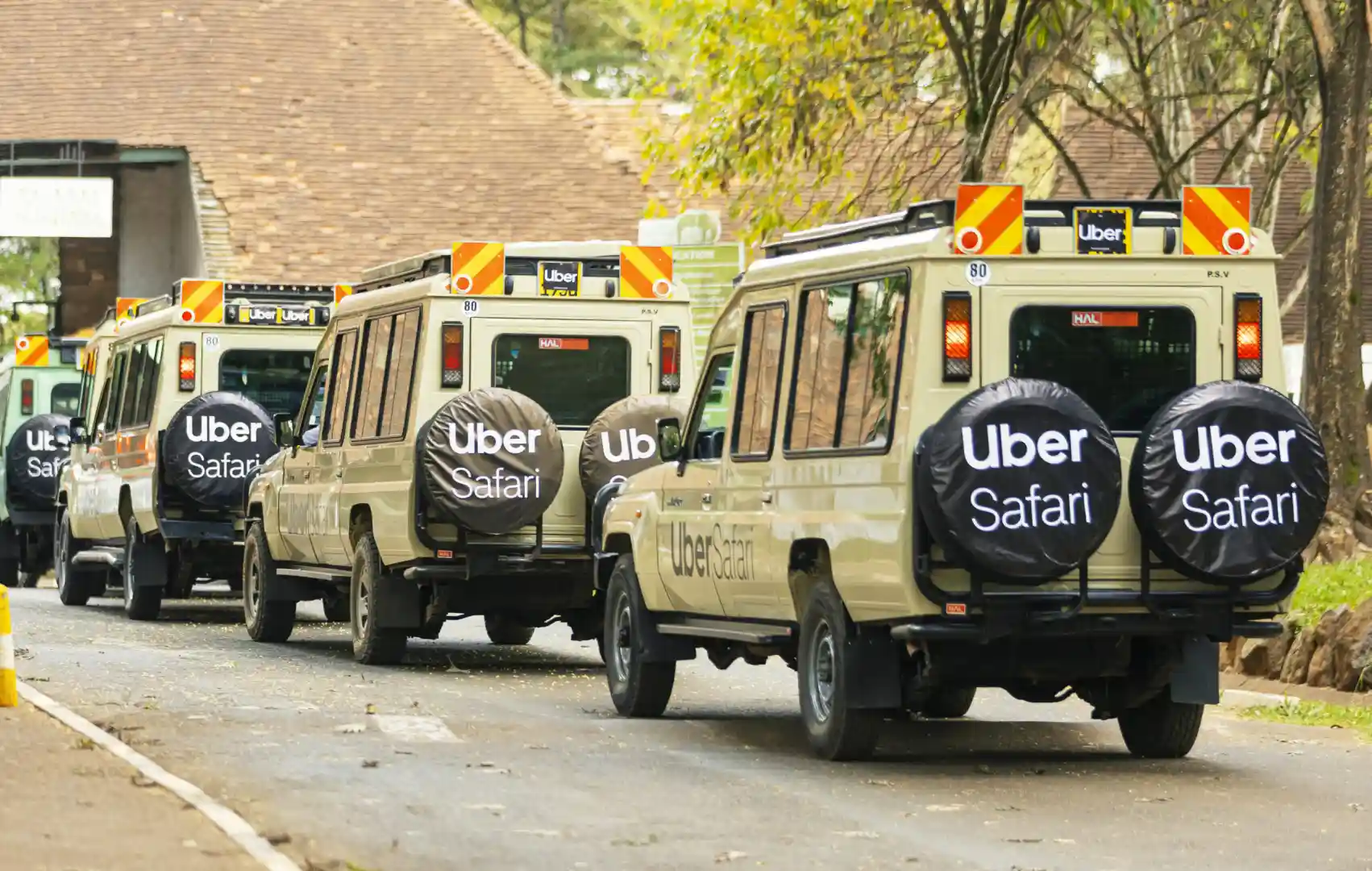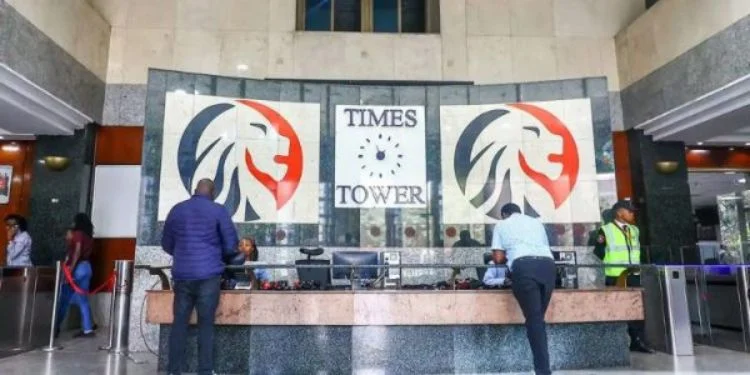The digital revolution has reached Kenya’s wildlife tourism sector in unprecedented fashion. Uber Technologies Inc. has officially launched Uber Safari, an innovative service that transforms how tourists and locals experience one of Africa’s most unique wildlife destinations. This groundbreaking initiative marks a significant milestone in Kenya’s tourism evolution, combining cutting-edge technology with the country’s rich wildlife heritage.
One decision can change your entire career. Take that step with our Online courses in ACCA, HESI A2, ATI TEAS 7, HESI EXIT, NCLEX-RN, NCLEX-PN, and Financial Literacy. Join Serrari Ed and start building your brighter future today.
A Decade of Growth Culminates in Innovation
Uber Safari launched as the company marks 10 years in Kenya, allows residents and tourists to book guided game drives directly through the app. The timing couldn’t be more strategic, as Kenya’s tourism sector is experiencing remarkable growth momentum. Research from the World Travel & Tourism Council (WTTC) has revealed Kenya’s Travel & Tourism sector is set to contribute a record KSh1.2TN to the economy this year, a record 24% above 2019 levels and equivalent to more than 7% of national GDP.
This massive economic contribution underscores the critical importance of tourism innovation in Kenya. The sector is also expected to support 1.7MN jobs in 2025 – maintaining over 8% of total national employment, playing a key role in the country’s future, representing nearly one in every 12 jobs in the country.
The Unique Appeal of Nairobi National Park
Nairobi National Park is the only national park in the world located within the boundaries of a capital city. This extraordinary characteristic makes it the perfect testing ground for Uber’s ambitious tourism venture. The park is located just 7 kilometers (4 miles) south of Nairobi’s Central Business District, making it the most accessible wildlife park from a major city in the world.
The park’s biodiversity is truly remarkable for its size. Spanning just 117 square kilometers, this park is a biodiversity hotspot, home to over 100 species of mammals and more than 500 species of birds. What makes this even more extraordinary is that visitors can spot the Big Four (lion, buffalo, leopard, and rhino) in one park, alongside over 100 mammal species, including giraffes, zebras, cheetahs, and even elusive hyenas.
How Uber Safari Works
The service operates with sophisticated simplicity. With Uber Safari, riders can choose between a Day Safari or a Night Safari, both through the Nairobi National Park. The booking process leverages Uber’s proven Reserve technology, allowing customers to plan their wildlife adventures with the same ease they book city rides.
Using Uber Reserve, riders can pre-book their adventure directly in the app, then be picked up in a fully licensed, safari-ready Land Cruiser operated by licensed tour companies. Each trip includes a licensed guide and a three-hour wildlife experience, seamlessly connecting the city to the wild.
The pricing structure reflects the premium nature of the experience. A daytime safari costs Ksh25,000 (approximately $190), while a night safari will set you back Ksh40,000. These prices position Uber Safari competitively within Kenya’s safari market while maintaining accessibility for various budget ranges.
Strategic Partnerships Ensuring Quality and Safety
Uber hasn’t ventured into this complex tourism space alone. The service is delivered in partnership with the Ministry of Tourism, Kenya Wildlife Services, Tourism Regulatory Authority and trusted local fleet partners, ensuring that every journey is safe, reliable, and rooted in Kenya’s commitment to sustainable tourism.
This collaborative approach addresses critical quality and safety concerns. According to TRA officials, the agency has increased enforcement efforts, revoking five operator licenses this year for failing to meet safety and quality standards. The Tourism Regulatory Authority has implemented strict oversight measures, with officials stating “We’ve asked Uber to send us a list of guides before onboarding them. We verify each one to ensure compliance with national tourism guidelines”.
Economic Impact and Market Opportunity
The launch targets Kenya’s massive tourism market with precision. The ride-hailing company that’s marking a decade in the East African nation is eyeing some of the $4.3 billion tourism income by targeting the thousands of business travelers wanting a quick safari during short stays in Nairobi.
Uber’s economic contribution to Kenya has been substantial. Uber says it contributed KES 14.1 billion to Kenya’s economy in 2023, while tourism accounts for 10.4 percent of the country’s GDP. More specifically, since launching in Kenya, Uber has become a powerful economic enabler, contributing KSh 14.1 billion to the economy in 2023 alone and helping drivers earn 37 percent more than their next best alternative.
Supporting Local Tourism Ecosystem
One of Uber Safari’s most significant aspects is its approach to local integration. Rather than operating its own safari vehicles, Uber is opening the platform to existing tour operators and Land Cruiser fleets. This approach seeks to create new income streams for local tourism businesses while giving Uber users access to established safari expertise.
This model ensures sustainable growth for existing operators. Uber Safari has been designed to complement Kenya’s existing tourism ecosystem. By opening the platform to local tour operators and fleet partners, Uber Safari creates new earning opportunities for those who already have vehicles and expertise in guiding safaris. Land cruiser fleets will soon be able to sign up their vehicles on the app, gaining direct access to Uber’s rider base and seamless booking technology, which helps generate new demand.
Build the future you deserve. Get started with our top-tier Online courses: ACCA, HESI A2, ATI TEAS 7, HESI EXIT, NCLEX-RN, NCLEX-PN, and Financial Literacy. Let Serrari Ed guide your path to success. Enroll today.
Leadership Vision and Market Positioning
Senior executives have articulated clear visions for the service’s impact. Imran Manji, Uber’s General Manager for East Africa, emphasized tourism’s economic importance: “Tourism plays a vital role in Kenya’s economy. With Uber Safari, we are excited to be unlocking new ways for people to connect with our incredible wildlife heritage. This product is designed to make safaris more accessible and convenient for both local residents and international visitors, while driving new earning opportunities for drivers and communities that rely on tourism”.
Anabel Diaz, Vice President for Uber in Europe, Middle East and Africa, positioned the launch within broader technological and cultural themes: “Uber Safari is a symbol of how technology and tradition can come together to deliver meaningful impact, from strengthening the tourism sector, to supporting livelihoods, to offering riders experiences they will never forget”.
Tourism Growth Projections and Future Outlook
Kenya’s tourism sector trajectory supports Uber’s strategic timing. Visitor spending projections show a healthy rise across the board with domestic visitor spending set to reach a new record at just under KSh560BN. International visitor spending is forecast to hit over KSh300BN, up 31% from 2019.
Looking toward the future, WTTC projects that by 2035, Travel & Tourism will contribute KSh1.8TN to Kenya’s economy, supporting over 2.2MN jobs. That’s 500,000 new jobs expected over the next decade – reinforcing the sector’s role in driving inclusive and sustainable growth.
Conservation and Sustainability Integration
The service aligns with Kenya’s conservation efforts, particularly important given Nairobi National Park’s unique challenges. Nairobi National Park is at a critical crossroads, facing immense challenges that threaten its very existence. With the park’s wildlife populations, such as the wildebeest, having declined by over 90% in the last few decades.
Despite these challenges, the park remains a conservation success story. Nairobi National Park is sometimes called Kifaru Ark, which means “Rhinoceros Sanctuary”. It is one of Kenya’s most successful rhinoceros sanctuaries, and it is one of only a few parks where visitors can be certain of seeing a black rhinoceros in its natural habitat.
Technology Meeting Tradition
The launch represents more than just a new service offering; it symbolizes Kenya’s position at the forefront of tourism innovation in Africa. By integrating this experience into the Uber platform, the business is offering locals and foreigners an opportunity to visit the park without having to go through much inconvenience.
The convenience factor cannot be overstated. Riders can be picked up from their home, hotel, office, or even the airport, taken on the safari, and returned, all in a single day. This flexibility particularly appeals to business travelers and tourists with limited time.
Market Response and Early Indicators
Initial market reception appears positive, with the service addressing previously unmet demand segments. The tourism industry in Kenya is one of its biggest economic drivers, and Uber Safari can drive more tourists to the country by making safaris accessible to even individuals with tight schedules.
The service targets specific market segments effectively. By eliminating the planning barrier and offering a specific cost, Uber is enabling more visitors to visit the park without being saddled with complex logistics.
Global Expansion Testing Ground
Kenya’s launch follows successful pilots elsewhere. Uber Safari has officially launched in Kenya after a successful trial run in South Africa by Uber, the US cab hailing and delivery firm. This suggests potential for broader African market expansion.
The global tourism industry’s recovery creates favorable conditions for innovative services. The global rise in eco-tourism and increasing awareness of conservation efforts have attracted international tourists to Nairobi National Park.
Challenges and Opportunities Ahead
While promising, Uber Safari faces several challenges common to tourism innovation in developing markets. Infrastructure limitations, seasonal variations in wildlife viewing, and competition from established safari operators represent ongoing considerations.
However, opportunities significantly outweigh challenges. Kenya’s growing middle class, increasing domestic tourism, and the country’s strategic position as East Africa’s business hub create sustained demand for accessible wildlife experiences.
The service also benefits from changing travel patterns. With the rise of digital nomadism and more flexible work arrangements, Nairobi has attracted a growing community of short-stay international visitors. These visitors represent prime customers for convenient, technology-enabled safari experiences.
Broader Implications for African Tourism
Uber Safari’s launch may signal broader transformation across African tourism markets. Traditional safari booking models, often involving complex advance planning and multiple intermediaries, face disruption from technology platforms offering transparency, convenience, and standardized pricing.
The success or failure of Uber Safari will likely influence similar initiatives across the continent, potentially accelerating digitalization within Africa’s tourism sector.
Conclusion
Uber Safari represents more than a new product launch; it embodies the convergence of technology, conservation, and economic development in modern Africa. By making Kenya’s wildlife heritage more accessible while supporting local communities and conservation efforts, the service demonstrates how innovation can create shared value across stakeholders.
As Kenya’s tourism sector continues its robust growth trajectory, initiatives like Uber Safari will play crucial roles in shaping sustainable, inclusive tourism models for the continent. The world’s only urban national park now offers the world’s most convenient safari booking experience—a fitting match for Kenya’s position at the forefront of African innovation.
The success of this venture will undoubtedly be watched closely across Africa’s tourism industry, as other destinations consider how technology can unlock their own unique tourism assets while supporting local economies and conservation goals.
Ready to take your career to the next level? Join our Online courses: ACCA, HESI A2, ATI TEAS 7 , HESI EXIT , NCLEX – RN and NCLEX – PN, Financial Literacy!🌟 Dive into a world of opportunities and empower yourself for success. Explore more at Serrari Ed and start your exciting journey today! ✨
Track GDP, Inflation and Central Bank rates for top African markets with Serrari’s comparator tool.
See today’s Treasury bonds and Money market funds movement across financial service providers in Kenya, using Serrari’s comparator tools.
Photo source: Google
By: Montel Kamau
Serrari Financial Analyst
18th September, 2025
Article, Financial and News Disclaimer
The Value of a Financial Advisor
While this article offers valuable insights, it is essential to recognize that personal finance can be highly complex and unique to each individual. A financial advisor provides professional expertise and personalized guidance to help you make well-informed decisions tailored to your specific circumstances and goals.
Beyond offering knowledge, a financial advisor serves as a trusted partner to help you stay disciplined, avoid common pitfalls, and remain focused on your long-term objectives. Their perspective and experience can complement your own efforts, enhancing your financial well-being and ensuring a more confident approach to managing your finances.
Disclaimer: This article is for informational purposes only and does not constitute financial advice. Readers are encouraged to consult a licensed financial advisor to obtain guidance specific to their financial situation.
Article and News Disclaimer
The information provided on www.serrarigroup.com is for general informational purposes only. While we strive to keep the information up to date and accurate, we make no representations or warranties of any kind, express or implied, about the completeness, accuracy, reliability, suitability, or availability with respect to the website or the information, products, services, or related graphics contained on the website for any purpose. Any reliance you place on such information is therefore strictly at your own risk.
www.serrarigroup.com is not responsible for any errors or omissions, or for the results obtained from the use of this information. All information on the website is provided on an as-is basis, with no guarantee of completeness, accuracy, timeliness, or of the results obtained from the use of this information, and without warranty of any kind, express or implied, including but not limited to warranties of performance, merchantability, and fitness for a particular purpose.
In no event will www.serrarigroup.com be liable to you or anyone else for any decision made or action taken in reliance on the information provided on the website or for any consequential, special, or similar damages, even if advised of the possibility of such damages.
The articles, news, and information presented on www.serrarigroup.com reflect the opinions of the respective authors and contributors and do not necessarily represent the views of the website or its management. Any views or opinions expressed are solely those of the individual authors and do not represent the website's views or opinions as a whole.
The content on www.serrarigroup.com may include links to external websites, which are provided for convenience and informational purposes only. We have no control over the nature, content, and availability of those sites. The inclusion of any links does not necessarily imply a recommendation or endorsement of the views expressed within them.
Every effort is made to keep the website up and running smoothly. However, www.serrarigroup.com takes no responsibility for, and will not be liable for, the website being temporarily unavailable due to technical issues beyond our control.
Please note that laws, regulations, and information can change rapidly, and we advise you to conduct further research and seek professional advice when necessary.
By using www.serrarigroup.com, you agree to this disclaimer and its terms. If you do not agree with this disclaimer, please do not use the website.
www.serrarigroup.com, reserves the right to update, modify, or remove any part of this disclaimer without prior notice. It is your responsibility to review this disclaimer periodically for changes.
Serrari Group 2025
















